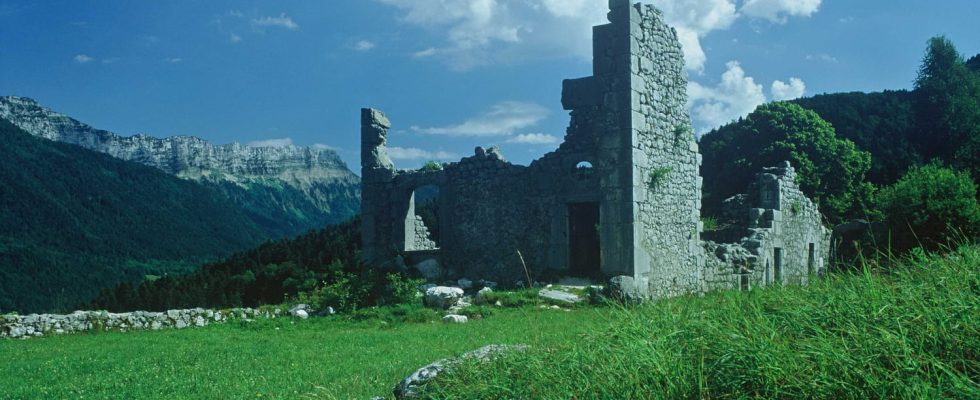Emmanuel Macron is expected in Vassieux-en-Vercors this Tuesday to commemorate the 80th anniversary of the Liberation of France. A village devastated after the massacre of the Second World War.
This Tuesday, April 16, Emmanuel Macron launches the kickoff of the commemorations of the 80th anniversary of the Liberation of France in Vassieux-en-Vercors (Drôme), a village completely destroyed during the Second World War. He will pay tribute to the resistance fighters of the maquis. The ceremony will take place from 3 p.m., first at the Resistance necropolis then in front of the martyrology, the President of the Republic will deliver a speech. He is the first president to pay tribute there. Vassieux-en-Vercors is one of the five municipalities elevated to the dignity of Companion of the Liberation with Paris, Nantes, Ile de Sein and Grenoble.
The massacre of July 1944
In 1944, the Vercors maquis saw an influx of numerous refugees and fighters, which attracted reprisals from the German and collaborationist authorities. In June 1944, as the Provence landings approached, the Montagnards Plan was activated prematurely. Access to the massif was blocked by resistance fighters and men were parachuted by the Allies to help train and coordinate the movement. While the landing did not take place until August, the Vercors had to face German attacks alone from July 1944.
Paratroopers were dropped at Vassieux-en-Vercors, which burned on July 23 after three days of fighting and massacres. 639 resistance fighters and 201 civilians were killed throughout the massif. “The inhabitants of Vassieux-en-Vercors paid with their lives for their support of the maquisards, young resistance fighters who came from all over the region to train for war out of sight. When they left the village, they were hidden in forest cabins” recalls France Info.
The parachute drop of July 14, 1944 spotted by the Germans led to terrible reprisals. A week later, the Wehrmacht attacked the village and the houses were burned, only the bell tower still standing. Because of the atrocities committed that day, modesty still prevails today when speaking about them. “He was found hanging by his feet, his mouth full of dirt. Mom, she had a lot of it,” Paul Jallifier recalled, 80 years later, about his father when he himself was still in the his mother’s womb in 1944 reports France Info.
